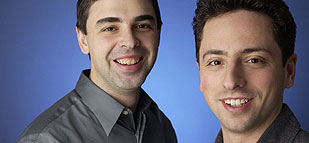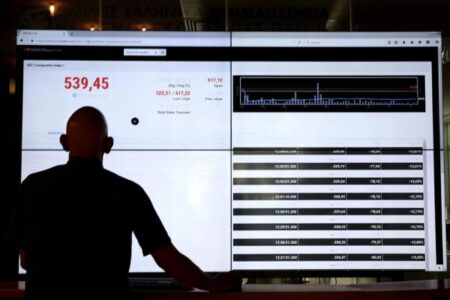In the latest earnings call, Barfresh Food Group (OTC:) announced a significant revenue increase for the third quarter of 2024, hitting a record high of over $3.6 million, marking a 40% surge from the same period last year. The growth was primarily fueled by robust sales of their Twist & Go smoothies and the successful launch of the new Pop & Go Freeze Pops. Despite the revenue increase, the company reported a net loss of $513,000 for the quarter. Barfresh is optimistic about continued expansion in 2024, underpinned by new product offerings, enhanced production capacity, and a broader sales network.
Key Takeaways
- Q3 2024 revenue reached over $3.6 million, a 40% increase from Q3 2023.
- Pop & Go Freeze Pops launched, with positive initial response and significant interest from schools.
- Production capacity expanded to over 120 million units annually, a 400% increase.
- Adjusted gross margin stood at 38%; however, selling expenses rose to $990,000.
- Net loss for the quarter was $513,000, slightly more than the previous year.
- Company aims for adjusted EBITDA breakeven in Q4 2023, needing an additional $0.5 million in sales.
Company Outlook
- Anticipated growth in 2024 driven by new products, increased production, and expanded sales network.
- Measures to improve liquidity include staff compensation with equity and seeking financing solutions.
- Targeting larger accounts for nationwide sales of Twist & Go.
- Plans to relaunch the single-serve product line in 2024, focusing on quick-service restaurants.
Bearish Highlights
- Net loss recorded at $513,000 for the quarter.
- Selling expenses increased due to higher personnel and travel costs.
- Production capacity constraints previously hindered revenue generation for Twist & Go.
Bullish Highlights
- Record revenue driven by strong sales of Twist & Go and the introduction of Pop & Go Freeze Pops.
- Broker network expansion covering 95% of the U.S., especially in the education sector.
- Positive initial response to Pop & Go Freeze Pops with anticipation of significant revenue contribution.
- New co-manufacturer for Pop & Go expected to yield better margins.
Misses
- Despite increased revenue, the company has not yet reached profitability.
- Adjusted EBITDA breakeven has not been achieved but is expected by Q4 2023.
Q&A Highlights
- The company is close to adjusted EBITDA breakeven, with $0.5 million more in sales needed.
- A strong balance sheet reflects $1.7 million in accounts receivable with minimal borrowing.
- Ongoing litigation claim filed for at least $20 million related to a bridge contract, with no further details disclosed.
Barfresh Food Group remains focused on leveraging its improved production capabilities and expanded product lines to drive future growth and achieve profitability. The management team was commended for their efforts amid these developments, as the company navigates through its current financial position and litigation matters.
InvestingPro Insights
Barfresh Food Group’s (BRFH) recent financial performance aligns with several key metrics and trends identified by InvestingPro. Despite the company’s record revenue in Q3 2024, InvestingPro data reveals that BRFH is not profitable over the last twelve months, with a negative P/E ratio of -13.25. This corresponds with the reported net loss in the latest earnings call.
However, there are positive indicators. InvestingPro Tips highlight that analysts anticipate sales growth in the current year, which is consistent with the company’s optimistic outlook for 2024. This is further supported by the revenue growth of 18.54% over the last twelve months, as reported in the InvestingPro Data.
The company’s liquidity position appears stable, with InvestingPro Tips noting that BRFH holds more cash than debt on its balance sheet and that liquid assets exceed short-term obligations. This aligns with the management’s comments on the strong balance sheet and minimal borrowing.
It’s worth noting that while the stock has taken a significant hit over the last week and three months, with a 7.58% and 30.29% decline respectively, there has been a large price uptick of 34.07% over the last six months. This volatility may reflect the market’s reaction to the company’s mixed financial results and future prospects.
For investors seeking a more comprehensive analysis, InvestingPro offers 11 additional tips for BRFH, providing a deeper understanding of the company’s financial health and market position.
Full transcript – Barfresh Food Group Inc (BRFH) Q3 2024:
Operator: Good afternoon, everyone, and thank you for participating on today’s Third Quarter 2024 Corporate Update Call for Barfresh Food Group. Joining us today is Barfresh Food Group’s Founder and CEO, Riccardo Delle Coste; and Barfresh Food Group’s CFO, Lisa Roger. Following prepared remarks, we will open the call for your questions. The discussion today will include forward-looking statements. Except for historical information herein, matters set forth on this call are forward-looking within the meaning of the Safe Harbor provisions of the Private Securities Litigation Reform Act of 1995, including statements about the company’s commercial progress, success of its strategic relationships, and the projections of future financial performance. These forward-looking statements are identified by the use of the words such as grow, expand, anticipate, intend, estimate, believe, expect, plan, should, hypothetical, potential, forecast, project, continue, could, may, predict, and will, and variations of such words and similar expressions are intended to identify such forward-looking statements. All statements other than the statements of historical fact that address activities, events, or developments that the company believes or anticipates will or may occur in the future are forward-looking statements. These statements are based on certain assumptions made based on experience, expected future developments, and other factors that the company believes are appropriate under the circumstances. Such statements are subject to a number of assumptions, risks, and uncertainties, many of which are beyond the control of the company. Should one or more of these risks or uncertainties materialize, or should underlying assumptions prove incorrect, actual results may vary materially from those indicated or anticipated by such forward-looking statements. Accordingly, investors are cautioned not to place undue reliance on these forward-looking statements, which speak only as of the date they are made. The contents of this call should be considered in conjunction with the company’s recent filings with the Securities and Exchange Commission, including its Annual Report on Form 10-K, and the quarterly reports on Form 10-K, and current reports on Form 8-K, including any warnings, risk factors, and cautionary statements contained therein. Furthermore, the company expressingly disclaims any current intention to update publicly any forward-looking statements after this call, whether as a result of new information, future events, changes in assumptions, or otherwise. In order to aid in the understanding of the company’s business performance, the company is also presenting certain non-GAAP measures, including adjusted gross profit, EBITDA, adjusted EBITDA, which are reconciled in tables in the business update released to the most comparable GAAP measures and certain calculations based on the results, including gross margin and adjusted gross margin. The reconciling items are non-operational or non-cash costs, including stock compensation and other non-recurring costs, such as those associated with product withdrawal, the related dispute and certain manufacturing relocation costs. Management believes that adjusted gross profit and adjusted EBITDA provide useful information to the investor, because they are directly reflective of the performance of the company. Now, I will turn the call over to the CEO of Barfresh Food Group, Mr. Riccardo Delle Coste. Please go ahead, sir.
Riccardo Delle Coste: Good afternoon, everyone, and thank you for joining us for our third quarter 2024 earnings call. I’m thrilled to announce that we achieved record quarterly revenue of over $3.6 million for the third quarter, representing a 40% increase over the same period last year. What makes this achievement even more exciting is that it serves as a robust baseline for our future growth, especially considering our new Pop & Go offering wasn’t a part of our third quarter offering or revenue. Our recent investments and strategic initiatives have positioned us exceptionally well for continued growth and profitability. Let me highlight some key developments. Our recent three new manufacturing partnerships, some of which have commenced and others still in the process of being commissioned, dramatically increase our production capacity, allowing us to meet growing demand and onboard new customers efficiently. We will now have the ability to produce over 120 million units annually across our product offerings, a 400% increase compared to last year. We have already begun ramping up operations with our new manufacturing partners and expect additional bottle capacity to come online in the fourth quarter. Our sales reach has experienced a transformative expansion with our broker network now covering an impressive 95% of the country. This extensive coverage is achieved through strategic partnerships with local brokerage firms across the United States, effectively putting hundreds of sales professionals on the ground actively promoting our products. The power of this approach lies in leveraging regional expertise and established local relationships, which has proven to be exceptionally impactful in the education channel. Complementing this external network is our dedicated internal sales force led by our experienced Vice President of Sales. This in-house team works in coordination with our national sales broker network, ensuring a cohesive and comprehensive sales strategy. It’s important to point out that we are just beginning our expansion opportunity in the education channel with approximately only 4.5% penetration currently in the schools in the U.S. During the fourth quarter, we commenced selling our 100% Juice Freeze Pops Pop & Go to the education channel. This new product, as with our other product in the education channel is compliant with USDA reimbursable meal programs and smart snack guidelines. The initial response from students and administrators has been extremely positive. Pop & Go complements our existing school offerings and strategically targets lunch menus in schools, which can be up to 5x the volume of our current breakfast menu offerings. Looking ahead, we see a clear path for Pop & Go to expand into other food service and retail channels, further broadening our market reach. The infrastructure we put in place is not just about this year’s results, it’s about building a company primed for sustained long-term growth. We’re excited to capitalize on our momentum with the launch of Pop & Go and further accelerate our growth trajectory. The company is in the strongest position it’s ever been having strategically aligned our on trend product offerings, amplified production capacity, and comprehensive sales network under the stewardship of our experienced management team. I’ll now turn the call over to our CFO, Lisa Roger. Lisa?
Lisa Roger: Thank you, Riccardo. Revenue for the third quarter of 2024 increased 40% to $3.6 million, compared to $2.6 million in the third quarter of 2023. Revenue in 2024 benefited from improvements in Twist & Go bottled smoothie sales from inventory built ahead of our seasonally high third quarter and improvements in smoothie carton and bulk sales. Gross margin for the third quarter of 2024 was comparable to the prior year period at 35%. Excluding production relocation costs, adjusted gross margin for the third quarter of 2024 was 38%. The year-over-year increase in adjusted gross margin is due to favorable product mix, pricing actions, and a slight improvement in the cost of supply chain components. Selling, marketing and distribution expense for the third quarter of 2024 increased to $990,000, compared to $697,000 in the third quarter of 2023. The increase is a result of investments in higher personnel costs, travel and broker commissions due to expansion of the company’s broker network, as well as freight costs due to the increase in revenue. G&A expenses for the third quarter of 2024 were $705,000, compared to $577,000 in the same period last year. The increase in G&A was primarily driven by the non-recurrence of recognizing employee retention tax credit benefits in 2023. Our net loss for the third quarter of 2024 was $513,000, compared to a net loss of $476,000 in the third quarter of 2023. The year-over-year increase is a result of increased headcount and the non-recurrence of tax benefits recognized in 2023, partially offset by the contribution margin from increased sales. For the third quarter of 2024, our adjusted EBITDA was approximately a loss of $124,000, compared to a loss of $89,000 in the prior year period. Now moving on to our balance sheet. As of September 30, 2024, we had approximately $2.1 million in cash and accounts receivable and approximately $770,000 of inventory on our balance sheet. In the first half of the year, we deployed a significant amount of cash to build up inventory in preparation for our seasonally high Q3. The inventory build allowed us to generate a 40% year-over-year increase in revenue for the third quarter of 2024. We expect expanded bottle smoothie capacity to come online in the fourth quarter. Additionally, we have taken other measures to reduce our liquidity requirements, including compensating our directors and employees with equity to reduce cash compensation requirements and obtaining non-recourse litigation finance and secured receivables financing. Now, I will turn the call back to Riccardo for closing remarks.
Riccardo Delle Coste: Thank you, Lisa. In closing, I want to share both our near-term and long-term outlook. For fiscal year 2024, we continue to expect record annual revenue and year-over-year adjusted gross margin improvement. This growth is driven by three key factors. First, the expansion of our product portfolio, highlighted by our innovative Pop & Go offering, which will begin generating revenue in the fourth quarter. Second, our significantly enhanced production capacity. And third, our broadened sales network, which is accelerating new customer acquisitions. These strategic initiatives not only set the stage for a strong finish to 2024, but also provide robust momentum as we enter 2025. Beyond our 2024 outlook, we have laid the groundwork for sustained future growth. A key part of this effort has been the establishment of our new co-manufacturing locations. While this represents a significant investment of internal resources and has resulted in incremental contract acquisition and trial costs that have impacted our third quarter results, it is crucial for our long-term growth. Beyond manufacturing, we’ve been diligently working on enhancing all aspects of our business. Our operations have also been bolstered by the newly integrated ERP and transport management system. This integrated infrastructure positions us to scale our business efficiently and effectively. With these building blocks now in place, we’re set to aggressively shift our focus and resources from increasing manufacturing capacity and operational improvements to sales growth. Our track record shows we can significantly increase sales and our expanded capacity gives us even more room to grow. We’ve been diligently rebuilding all aspects of our business and are in a great position to capitalize on these investments. The future is bright and we’re more prepared than ever to drive our sales to new heights and seize the opportunities ahead. These initiatives, coupled with our strengthened position in the market, and the positive momentum we’re seeing in 2024, gives us confidence in our ability to deliver substantial growth and value for our shareholders in both the near-term and the long-term. And with that, I would like to open the line for questions. Operator?
Operator: Thank you. We will now be conducting a question-and-answer session. [Operator Instructions]. Our first question comes from Anthony Vendetti with Maxim Group. Please proceed with your question.
Anthony Vendetti: Thanks, Riccardo, and Lisa. How are you?
Riccardo Delle Coste: Good. How are you?
Lisa Roger: Good. How are you?
Anthony Vendetti: Good. Thanks. I was just wondering if you could talk a little bit about the new Pop & Go, Freeze Pops. Just the initial traction, what the pipeline looks like? And then any other commentary you want to provide around that, that would be helpful. Thanks.
Riccardo Delle Coste: Yes, sure. So we actually, we’ve just shipped our first orders for Pop & Go, so they’ll be registering some revenue commencing in Q4 like we mentioned. The interest has been exceptionally high. We’ve had a lot of people express interest in the — in new Pop & Go just from the samples that have been sent out. We’ve already got opening orders. We’ve got new distributors that are getting codes set up all over the country. Probably the most exciting part of the new Pop & Go offering, and we do talk about it a little bit, but understanding the detail of the difference between the breakfast menu, volume of servings and the lunch opportunity in the same education channel is very significant. So you just have a much bigger audience. And the volume of lunch served, if we get on the menu at lunch versus for breakfast is potentially up to 5x the amount of volume of what we’re doing for the, say the Twist & Go on the breakfast menu. So that is a very, very significant opportunity for us as we look to go into the same customers that we’re already serving with the Twist & Go. And in addition to having products on their breakfast menu, we now also have products on their lunch menu, as well as brand new customers and having an alternative option for them for the lunch menu. So we’re very excited about it, very, very excited about it.
Anthony Vendetti: Okay. So that’s great. So the co-manufacturer that you signed up recently, are they doing both the Twist & Go and the Pop & Go? Or is it mostly the Pop & Go for the new co-manufacturer? And then on the Pop & Go, are they similar margins to the Twist & Go better? Maybe just give us an idea about that.
Riccardo Delle Coste: Sure. So that manufacturer does not make our Twist & Go product, but they do some other products for us. So it’s different. However, from a margin profile perspective, it’s probably at the same, probably a little bit better margin profile than the Twist & Go.
Anthony Vendetti: Okay. And —
Lisa Roger: Like our single serve product and some of our bulk products as well. So the expansion is every product line.
Riccardo Delle Coste: Yes. We’ve really done a lot of work on — we’ve done a lot of work over the last 12 months on the manufacturing front to really give us the coverage that we need from a manufacturing footprint nationally and building in some extra redundancy within our system to cover multiple products. So with that, we believe we’re also going to get some additional product cost savings as we kind of roll out and commission new manufacturing locations and we just get more volume and better pricing and just better efficiencies across the network.
Anthony Vendetti: Okay. And then separately at this time, how many school accounts are you active in right now?
Riccardo Delle Coste: That’s a great question. We’ve got new ones being added almost daily. We did announce about three months ago the addition of about 3,000 new locations. Some or a lot have been onboarded and others are still to be onboarded as we get through the back half of the year. We feel as though we’re at about a 4.5% penetration, which is about 6,000 schools-ish, right, give or take. Once we get into the beginning of the New Year, we’ll have a better handle on that number and we’ll be able to share it in more detail.
Anthony Vendetti: So 6,000, about 4.5% penetration, are there schools that are just not good candidates for this or when you look at the spectrum of schools across the United States are half the schools good candidates or 75% of them good candidates? How do you look at the entire school account for Barfresh?
Riccardo Delle Coste: Yes. So that’s a good question and it’s probably worth some further explanation because that 4.5% and that penetration that we’ve been talking about is only for the Twist & Go, right? I mean, up until this week we hadn’t even shipped any Pop & Go. So Pop & Go is like just complete white canvas and 100% of the market is open to us still from penetration perspective. So as you look at the Twist & Go product, they’re all great candidates for us, all the schools are. It really just — you got to remember that we’ve also been capacity constrained up until now. So now that we’re getting the capacity unlocked and the manufacturing brought up. We expect to increase the volume significantly and thus the penetration. And at the same time, we’re looking to go and penetrate the same market and the same customers with Pop & Go, which is we’re at 0% right now.
Anthony Vendetti: Okay. Okay, great. That’s helpful. Thanks very much. I appreciate it. I’ll hop back in the queue.
Riccardo Delle Coste: Okay. Thanks, Anthony.
Operator: [Operator Instructions]. Our next question comes from Ankur Sagar [ph]. Please proceed with your question.
Unidentified Analyst: Hey, good afternoon, Riccardo, and Lisa. Thank you for taking my questions.
Riccardo Delle Coste: Hi, Ankur.
Unidentified Analyst: Congratulations on the higher top line number. I think I want to commend you for the job you have done. I mean, I think it’s fair to say you have persevered against all odds.
Riccardo Delle Coste: Yes, we definitely have been. And Ankur, we’re really just scratching the surface still. Yes, it’s probably been our first kind of significant jump in a while. But that’s really only because we’ve had both arms tied behind our back, right? And we’re really being short on supply. So with the inventory build that we did at the beginning of this year and now with the extra capacity that’s coming online, we really expect a lot more of these types of jumps to occur.
Unidentified Analyst: Absolutely. Great job by you and your team. I think it’s — as a shareholder, it’s just been amazing to see that what you have accomplished in the last couple of years and that too without not much of dilution, so that’s great. I want to ask a couple of questions. It’s the first one is a multi-part question in regarding the new product. It seems to me like now you’re an innovation company with putting new products into the lunch area as well for the schools. How did the company came about this product? I mean, was it based on the customer feedback on the free spots or is it just that you wanted to basically go after the lunch side of the school as well? And in terms of the signing up the schools and getting on this product on the lunch menu, how do you go about doing that? Do you have to wait for the school bids or that you have customers, the 6,000 customers or so for Twist Go, you can potentially reach out to the right personnel and just be able to get this on a launch menu without the bidding process.
Riccardo Delle Coste: Okay. So I’ll take the questions from the top. We created the products by combination of understanding where the bigger part of the opportunities are. Yes, you’re right. The lunch menu is definitely a much higher volume opportunity and we recognize that. But we also listened to what our customers were asking for. So it was in conjunction with talking to our customers. But then it was also in conjunction with understanding what we already have access to our supply chain. What our supply chain? What kind of great products can we deliver to these customers utilizing the ingredients that we’re already using as well, right? Because we’re using a lot of the same ingredients, we’re using the same supply chain. And talking — and by talking to our customers and recognizing then the significance of the opportunity then on the lunch menu. So it’s a multi-faceted approach to introducing a new product and understanding the market. And we believe that, personally, I believe that the new Pop & Go product, I believe it’s going to surpass our Twist & Go product just by sheer volume opportunity out there in the marketplace for this product category, and based on the initial reception and acceptance that we’ve had from the initial customers that we’ve been talking to. So time will tell. But just from the initial feedback and the volumes that are being proposed to us from our customers, I’ll give you an example. We did have a customer that was forecasting about 40,000 units a month for the Twist & Go product, and they intend to add the Pop & Gos in the spring, and they’re going to do about 200,000 a month of the Pop & Gos started in spring per month. So we are already seeing the significance of the contrast in volume opportunity between the Twist & Go product and the Pop & Go product, which is why we’re so bullish, excited about it. So that I believe that’s going to play out over time as we get out to the customers. In terms of approaching customers now and our existing customers, it’s a total mixed balance. The answer is yes, absolutely. We’re going to be going to our direct customers that we’re already servicing, that we’re already on menus to. In some instances, they will have flexibility to add them to their menus. They may choose just to add it to their cafeteria menus at the moment and a la carte where they can buy it. And then maybe when their bid season opens up, they’ll rebid it and then it’ll get added to the bids. Some won’t be able to add it until the bid season rolls around. Sometimes that happens twice a year. Sometimes they do special bids. It really is a mixed bag around the country for different types of schools.
Unidentified Analyst: Got it. Got it. And that’s great. And in terms of the — is it fair to say from the Twist & Go side that you’re somewhat still supply constrained, I think you mentioned the prepared remarks about another contract manufacturer coming up in Q4. And that should allow you to basically go after and supply the Twist & Go product even to larger school districts.
Riccardo Delle Coste: Yes, that’s not means words. We’re not somewhat constrained. We have been completely restrained. And that’s really been very significant factor to what had a cap on our ability to generate the revenue. So we have the facilities being commissioned now as we speak, literally. And we expect that volume to start to turn on in Q4, and further improve at the beginning of next year as well. So as we see that volume capacity opening up, we will definitely be approaching those larger accounts and be more broadly and aggressively going out there and selling the Twist & Go product nationwide.
Unidentified Analyst: That’s great. I mean, I see it actually even on social media, customers, school administrators, students’ love your product and some are just waiting for like, when it’s going to show up again on the menu. So I can attest to that.
Riccardo Delle Coste: We probably get an e-mail every other day from a parent, a teacher, a grandparent, letting us know that their child or their grandchild has had the product and they loved it and they want to know where else they can get it from, so they can get it at home. So we definitely get great feedback on the product, and we look forward to getting it out to more students.
Unidentified Analyst: Got it. Got it. And the — I think you had one item regarding the manufacturing relocation. Is it — is it just something you’re doing with the contract manufacturing right now a move? Or is this still the remainder of that the legal dispute you had a couple of years ago?
Riccardo Delle Coste: No. That was more of a repositioning. We actually — one of our co-packers was sold off and the new owners didn’t do any contract manufacturing, so we had to relocate the equipment as a result of that. So that’s really our single-serve product. So we will be, again, focusing more on once that new line is up and running, which is actually being done as we speak as well. We’ll be targeting that single-serve business going into next year again.
Lisa Roger: Yes. So that was the business where we had significant opportunities with QSRs, before COVID. So that’s really a very significant new opportunity to relaunch that.
Riccardo Delle Coste: Yes. Yes. And for those that have been following for a while, we had multiple national QSRs where we’ve got multiple products approved by them, and we’re ready to roll out actually. So we’ll be picking up those conversations going into next year, and we’ve already started planning those seeds.
Unidentified Analyst: Right. That’s great. That’s great. And just one other — one more. If I think now I see some of the business is also a cash constraint. I think your goal is to probably get the sales growth and even be able to get to cash flow breakeven, generate cash. And is there a revenue number that you can share where the company gets to cash flow breakeven? And any sort of comments you can provide on the timeline on when you get there?
Lisa Roger: Yes. Well, we were very close to EBITDA — adjusted EBITDA breakeven this quarter after a series of loss. So kind of think about our contribution margin on sales was probably we need another, I don’t know, $0.5 million to be adjusted EBITDA breakeven, so we’re very close. We expect to be there for Q4. And you talked about being cash constrained. Somewhat true, but I mean we also have the receivables facility. And if you look at our balance sheet, Q3, we had — I want to say $1.7 million in AR. We only borrowed $100,000 on it. So we could have borrowed like another $1.2 million if we really needed it. We just don’t want to borrow unnecessarily.
Riccardo Delle Coste: Yes. So we have access to and we have cash available to meet our plan. So we feel like we’re in a really good spot right now.
Unidentified Analyst: Great. No, no, that’s for sure. I think you guys have done an amazing work here on managing that. Just one last one. This regarding the litigation, I don’t know if you can comment on this. I mean it has taken a while. I think you have done the right — taken the right sort of decisions to get the recourse financing in place and I think you’re just trying to make sure that you get the right amount here. And can you share at least the initial amount that you’re going after in this litigation dispute?
Riccardo Delle Coste: Yes. We’re really taking a position that we’re really not talking about it, Ankur. The filing was — we filed a claim for a minimum of $20 million for the bridge contract, that’s public, and that’s really where we’re leaving it at this stage.
Unidentified Analyst: Got it. Got it. Okay. That’s great. Thank you for taking my questions. I appreciate it. Great work.
Riccardo Delle Coste: Right. Thank you.
Lisa Roger: Thank you.
Operator: [Operator Instructions]. We have reached the end of our question-and-answer session. This concludes today’s teleconference. You may disconnect your lines at this time. Thank you for your participation.
This article was generated with the support of AI and reviewed by an editor. For more information see our T&C.
Read the full article here















